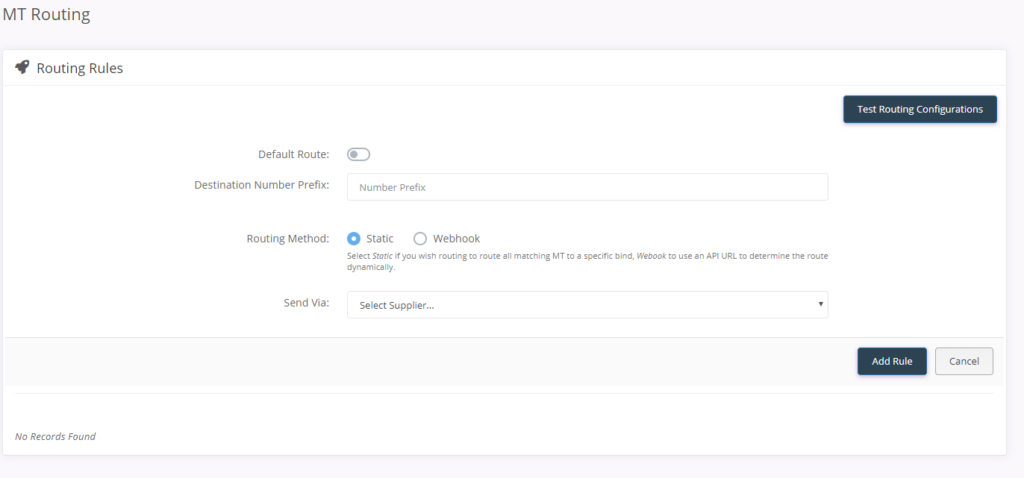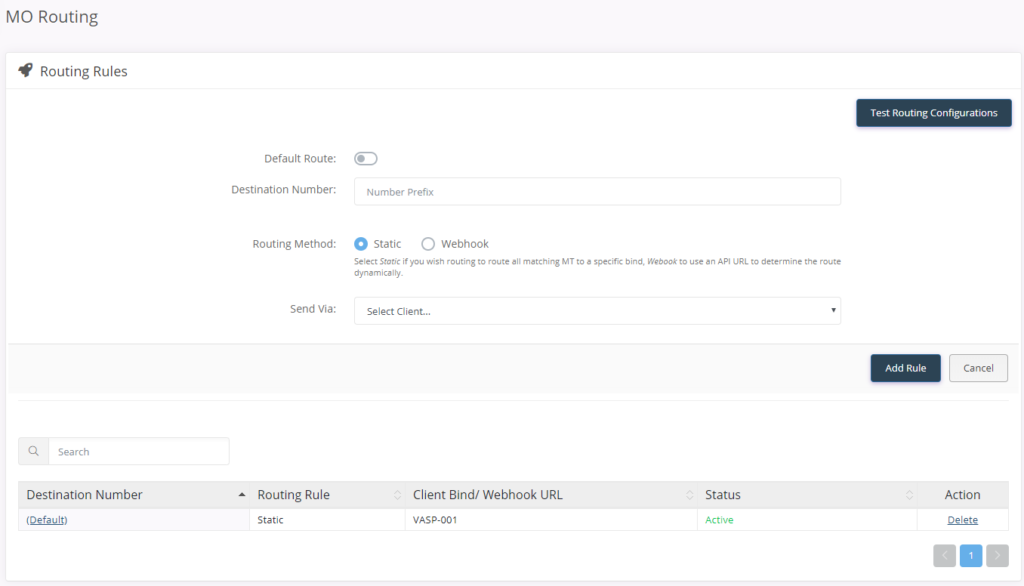This section contains message routing and number normalization rules.
Normalization Rules #
In order to standardize number formats across the binds, Lark Router supports matching number prefixes replacing them as necessary to provide a consistent numbering plan.

For each MT destination number type that needs to be normalized, enter the prefix you want the gateway to replace, such as 001 and what to replace it with such as +1. Phone numbers such as 0017815551212 will thus be changed +17815551212.

MT Routing #
MT message routing is based on the destination number prefix and the type of message (MMS or SMS). For each type of message, the gateway also supports default routes, used when no prefix matches. Each MT routing rule is defined by the type of message, number prefix (if not a default route), and how to route the message, that is whether to use a static route, i.e. route all messages matching the rule to a specific supplier bind, or dynamically determined route, i.e. request the route to use from a webhook API endpoint. Please see here for more on the webhook API.

Testing Routing
To verify your route settings, select the Test Routing Configuration. Then, enter the Sender and Received number and the type of message. The gateway will return the destination supplier bind it would use to send the message, or an error if no valid route has been configured.
MO Routing #
MO message routing is based on the destination number and the type of message (MMS or SMS). As with MT routing, the gateway also supports default routes. Each MO routing rule is defined by the type of message, number (if not a default route), and how to route the message, that is whether to use a static route, i.e. route all messages matching the rule to a specific client bind, or dynamically determined route, i.e. request the route to use from a webhook API endpoint. Please see here for more on the webhook API.

